Rachael Gledhill is curate at St Barnabas Church in Dulwich. The Messy Church she leads there began during lockdown, and in less than two years has enjoyed contact with over 300 new families. Rachael and her team’s Messy work was featured in BBC One’s Songs of Praise on 23 January. She explains how it all began…
20 March 2022
How it began
I’d started this job in June 2020 and we started Messy Church the following October, between lockdowns. The first thing we did was Messy Harvest. We had no idea what it would be like, but we advertised spaces for 16 family bubbles and they’d all be on their own table, round the hall.
We did the whole thing as a sort of immersive story, so they came in, got the first bit of the story, then got the activity delivered to their table, and then they got the next bit of the story, and so on – four activities in all. And the final thing was they all made a prayer den. They got a big sheet and they put it over their table, and they had to build a prayer den with fairy lights and get inside with their family.
We were so surprised that it was fully booked with 16 families. That doesn’t seem very many, but at the time we were amazed it booked up so quickly. So we thought we’d offer a second one: just repeat it the following week. We’d found it so hard to minister to families during the pandemic and this seemed a good way to do something.
‘We’d found it so hard to minister to families during the pandemic and this seemed a good way to do something.’
So we offered a second session, and within 24 hours of opening the booking, that was filled too – this time with another 16 families booked in. So we thought, well, maybe we can offer a third one. And that was fully booked, too, with a waiting list.
In and out of lockdown
But then in November we went into lockdown again. We moved Messy Church online, with YouTube videos, but that wasn’t as successful. People already had a lot of online things to be doing, and there wasn’t the level of interest that we’d had for the October sessions.
In December we got one Messy Christmas in person before we moved into another phase of restrictions, so then we moved to offering ‘Messy Church in a Bag’, which we did all the way through to Easter. We had no idea how that would go, but people wrote to us from all over the place saying, ‘We’re watching online; we’d love a bag.’
So we were posting these things to quite faraway places, which cost a lot of money. But we thought of them as seeds, and we’ll never know what fruit they might produce. Six months on we heard stories from people who said the Messy Bags had helped them survive lockdown with their newborns or during post-emigration quarantine. By Easter we went back to the in-person bubbles.
‘We thought of the Messy Bags as a seeds, and we’ll never know what fruit they might produce.’
‘Proper’ Messy Church – connection to community
We relaunched in September 2021 with what we think of as ‘proper’ Messy Church, and went back to the original format. We had 150 adults and children booked in for that first session but subsequently we’ve been fully booked with 250 adults and children and more on a waiting list. For Messy Christmas, we had 400 adults and children booked in, but we had to move outside in the end because of the arrival of Omicron, and it didn’t go to plan.
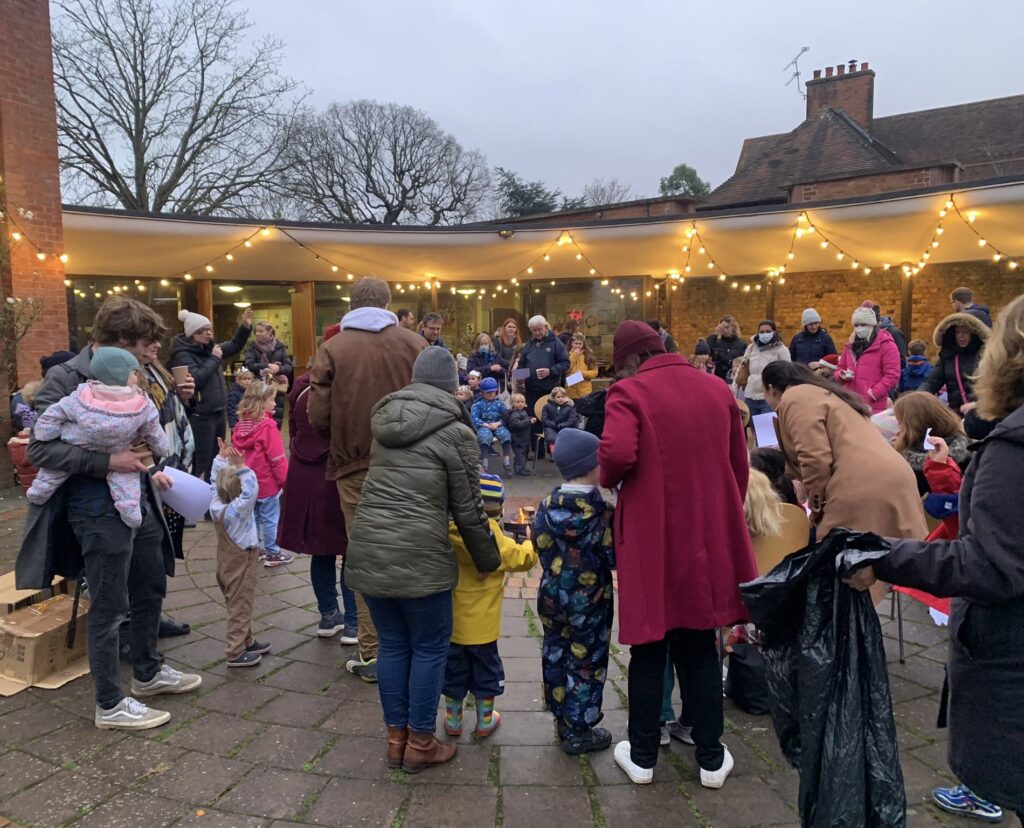
‘For Messy Christmas, we had 400 adults and children booked in, but we had to move outside in the end.’
From the start of October 2020 to today, we’ve had over 300 families come to our Messy Church, and 87% of those families were unknown to us before.
We’ve all been really surprised about the interest. I think it’s partly demographic and resources, but I also think people were just so desperate to have a connection to community and that’s what Messy Church offered them. And then they started to think, ‘Oh, is there something bigger?’
Why does Messy Church have such an impact?
Messy Church should always be the definition of ‘the cup runneth over’. Hospitality is so important. In an area like this, which is wealthy in so many ways, people are not used to being offered things. In a society in which money can buy so many things, people are really surprised when we offer abundant hospitality freely. They say, ‘You’re just doing this for us?’ And we say, ‘Yes, because we want to do it for you.’ They find that really moving, because they can’t understand why people would want to cook a meal and just enjoy spending time with them.
Also, Messy Church provides a way of people accessing faith that isn’t as scary as going into a Sunday morning church service, where everything’s quiet and you have a hymn book and you’re worried about your children messing around or making too much noise. I think there are ways to create that cross fertilisation, but that’s not necessarily the aim. The aim is to reach a broader demographic and families in our community we wouldn’t otherwise meet.
‘They say, You’re just doing this for us? And we say, Yes, because we want to do it for you.’
The rewards and blessings of working with Messy Church
It’s a real privilege to be able to walk through people’s faith journeys with them. For example, at the first Messy Church in September, John the vicar met a family for the first time who were facing a cancer diagnosis, and if it wasn’t for the Messy Meal, he wouldn’t ever have had the opportunity to share a meal with them.
There have been a lot of families like that. Just this week, I’ve been doing school runs for some families where the parents have got Covid, but the kids haven’t, and I saw so many Messy Church families in the school playground and I was reminded how it’s really enabled us to reach the community in different ways.
In my mind Messy Church is one of the most effective ways of reaching out missionally to families today. I would always prioritise planting a Messy Church in a new context, even though it requires a huge input of time and energy to build a team and get it off the ground: the fruits are always messy and always profound.
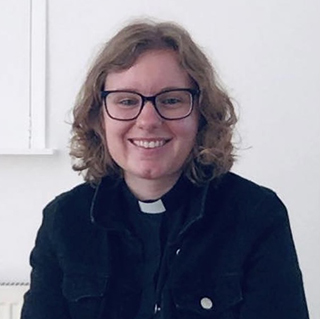
Rachael is in her first curacy, having trained for two years at Wescott House in Cambridge and one year at St Mellitus College in London. She had previously worked at a youth and children’s worker at a church in Elephant and Castle, where she was also involved in Messy Church.
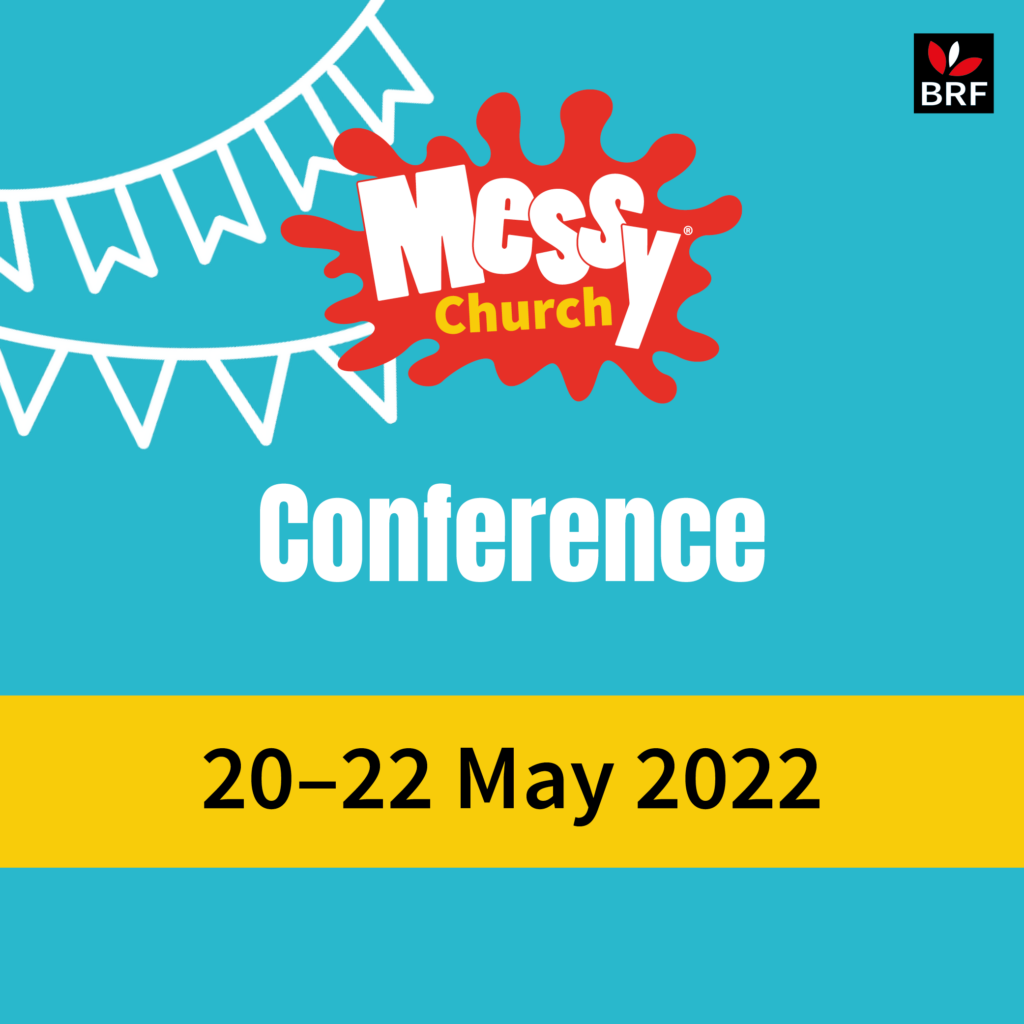
If you’re looking for ideas and inspiration to get your Messy Church going again post-pandemic, there’s no better place to go than the Messy Church Conference. Whether you’re 8, 28 or 108, if you’re on the leadership team of your Messy Church in some capacity, this conference is for you.
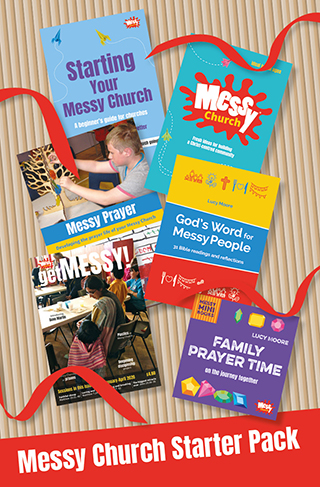
Looking to get started with your Messy Church? Our Messy Church starter pack has everything you need from the wide range of Messy Church books and resources to help get your Messy Church up and running.
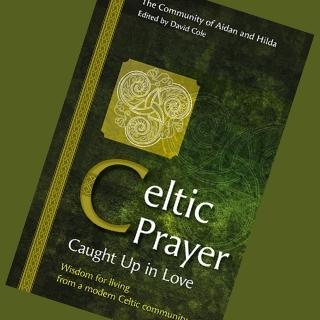
Published on Friday, Celtic Prayer: Caught Up in Love, edited by David Cole, contains reflections from 30 different members of the Community of Aidan and Hilda, and is full of ‘wisdom for living from a modern Celtic community.’ Significantly for our war-torn world, it includes an important chapter on ‘Overcoming evil – spiritual warfare’ , which states:
There is a danger that in our modern world we think of ourselves as civilised and beyond such posturing, but we simply have to consider the history of the 20th century… to realise that warfare language is a sign of two main sources of conflict: 1) the fallenness of humanity and our propensity to dominate through ideology; 2) the ongoing conflict between forces of good and evil, whether that is political or spiritual.
